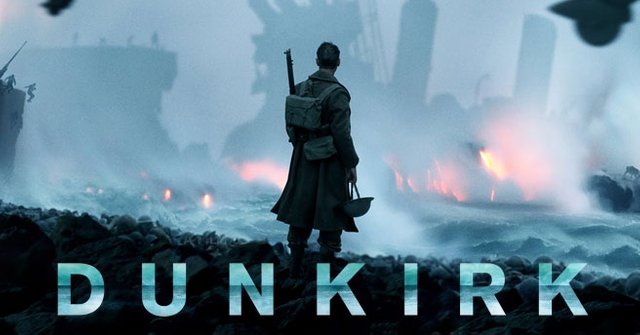Film Notes: Dunkirk (2017)
Seen on 23/8/17 in a 2D cinema, by myself.
The audio was visceral and scary. When the first bullets flew by our protagonist’s head, I jumped in my seat. The shock of bullets whizzing past and ricocheting against a building or a boat’s metal hull is horrifying, and I was glad not to have experienced it, as well as hopeful that I never will.
The phrase “Home”, although carrying one of the film’s most poignant themes, was repeated one time too many times in my opinion: the second time, in the interaction between infantry Colonel Winnant (James D'Arcy) and Navy Commander Bolton (Kenneth Branagh). I wonder if there was a sense of obligation to abide by the rule of three, for the theme to be recognizable and compatible with as many people as possible.
Great soundtrack, although I may have been too conscious of it after taking Hans Zimmer’s masterclass on film composition. I really liked it when the ticking noise stopped as soon as the lead, Tommy (Fionn Whitehead), fell asleep in the train at the end.
Powerful irony at the end where the one soldier doesn’t realize that the old man greeting them is blind and he decides that no one will even be willing to look at the returning soldiers. His own convictions and sense of failure blinded him to the truth the blind man quietly espoused: surviving is enough.
There were such grace and serenity in the story of the pilot, Farrier (Tom Hardy). His masterful, patient, and courageous fighting and landing encapsulated what seems to be the incredible achievement of the escape from Dunkirk and of winning WW2 in general. With no fuel, he managed to defend the remaining infantry on the beach and then land peacefully on the shore. Hardy once again acts primarily with his eyes, and does so very well, portraying realistically the behaviors of a hero.
The overall simplicity of the film was one of its strengths. The three parallel stories and their themes were straightforward and minimalistic in their telling, which was the main reason the film’s poignancy did not cross the line into the banal. As I see it, “the mole” focused on resilience and pure survival, “the sea” on empathy, and “the air” on courage.
The story of the rescued soldier (Cillian Murphy) was well-told, his performance subtle and heartbreaking. The shell-shock and pain were convincing, as was his helpless frustration with it all, and his regret for his fatal outburst. At the end, when through the crowd he saw the body of the boy he had accidentally killed, we suddenly lose him and never see him again, mirroring the loss he felt at that moment. The boy who tried to protect him from this truth grew in the process.
The old man (Mark Rylance) and his grief is hidden well, his motivation remaining a mystery until the very end. When we learn that he has recently lost his older son in the Air Force, his early comments and determination are explained.
Successful, minimalistic storytelling. It left its mark on me.
~~~ You can find more film notes on my Meupila blog.~~~
